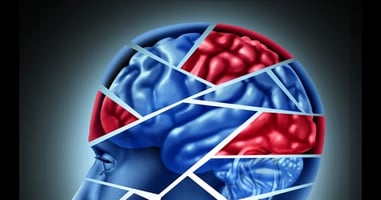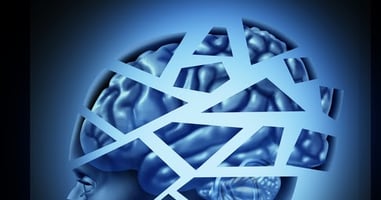A study published this week in JAMA Neurology suggests that traumatic brain injury (TBI) may be...
TBI Found to Increase Long-Term Risk of Dementia
 |
TBI affects 47 million people globally and is a major cause of mortality and disability, yet large-scale studies with long follow-up have been sparse, wrote lead author Jesse Fann, M.D., M.P.H., a professor of psychiatry and behavioral sciences at the University of Washington School of Medicine, and colleagues. The researchers used the Danish Civil Registration System to track a cohort of 2,794,852 people aged 50 and older. Of this group, 132,093 individuals (4.7%) had at least one TBI diagnosis between 1977 and 2013, and 126,734 (4.5%) developed dementia between 1999 and 2013.
Fann and colleagues found that the risk of dementia in people with a history of TBI was higher than in those without a history of TBI (hazard ratio[HR]=1.24), as was the specific risk of Alzheimer's disease (HR=1.16). The risk of dementia was highest during the first 6 months after TBI (HR=4.06), after which it gradually decreased (HR=1.17 at more than 14 years since TBI). The risk of dementia also increased consistently with increasing number of TBIs.
“The risk was highest among people with multiple TBIs and those who sustained a severe TBI, but the risk was significant even after a single mild TBI and remained high for many years after injury,” the authors concluded. “Considering the increasing burden of dementia and the high prevalence of TBI globally, heightened efforts are needed to prevent TBI, particularly among younger individuals, and strategies to ameliorate the risk and impact of subsequent dementia must be identified.”
For related information on assessing TBI, see the Psychiatric News article “Computer-Based Tool Can Offer Rapid Screening After TBI.”
(Image: SvedOliver/Shutterstock)






